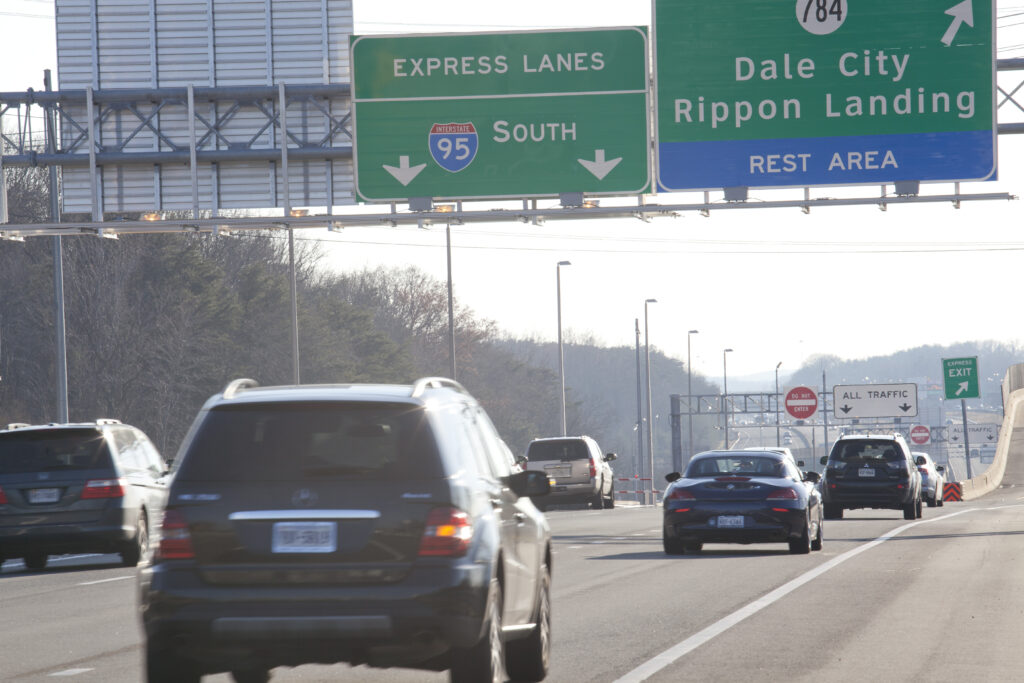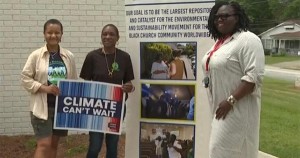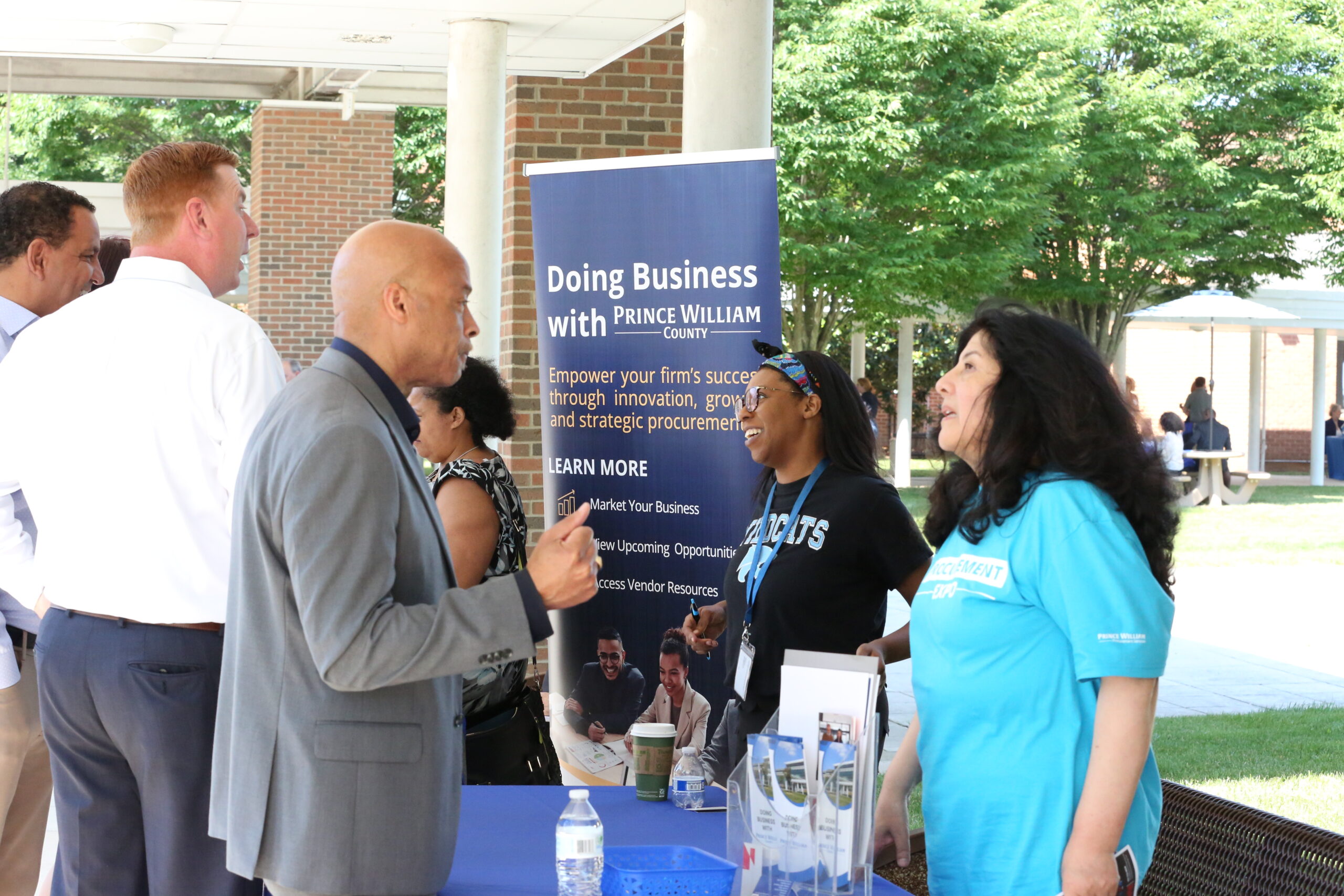Virginia reviewing potential of two-way I-95 express lanes
by Virginia Mercury
As calls to reduce traffic congestion grow, Gov. Glenn Youngkin’s administration is reviewing the potential of converting the Interstate 95 Express Lanes to operate in both directions instead of switching direction along with traffic.
On Dec. 20, Fairfax County Board of Supervisors Chairman Jeffrey McKay and Prince William Board of County Supervisors Chair Ann Wheeler sent a letter to Youngkin and top state transportation officials expressing their support for bidirectional travel on the express lanes.
“Our constituents in Fairfax and Prince William Counties, and those who must continually travel along I-95, experience significant congestion in both directions during peak periods,” McKay and Wheeler wrote. “A bi-directional facility could provide additional options for residents commuting along the corridor, offering much needed relief. While this will not completely solve congestion on I-95, it will certainly help mitigate it, allowing people to spend less time in traffic and more time with their families.”
The Youngkin administration and the expressway operator, Transurban, have been considering the conversion of the three-lane 31-mile corridor for the past two months, according to Secretary of Transportation W. Sheppard Miller III.
“This is about doing what’s right for the region, and completing a network of express lanes that make sense, that is reliable and predictable,” said McKay.
Northern Virginia officials have struggled for years to find a solution to address the growing congestion on I-95.
The reversible express lanes — a dedicated corridor that could switch to accommodate heavier traffic flows — were originally constructed for buses. However, in 1973, the lanes opened to carpools with four or more occupants, according to the U.S. Department of Transportation.
Then in 2014, the preexisting express lanes were increased from two to three. The $969 million project was conducted through a public-private partnership between the Virginia Department of Transportation and 95 Express Lanes LLC, a private consortium owned by the Australian toll road operator Transurban Group and Fluor Enterprises.
However, McKay said the reversible express lane design was inefficient, and the environmental degradation it caused “was far more intrusive than the benefit.”
“The engineering solution that was put on the table … in my mind, fell far short of the solution that was necessary to unlock the gridlock,” McKay said.
McKay said he’s unsure whether single or double lanes would be required to make the express lanes bidirectional. He said engineers told him there is sufficient space to fit in additional travel lanes to allow traffic to flow in both directions.
In addition to the governor, McKay and Wheeler copied Miller, VDOT Commissioner Stephen Brich and Transurban North America President Pierce Coffee on their letter.
Macaulay Porter, a spokeswoman for the governor’s office, did not provide any additional comments from the governor but said he has spent “a lot of time” traveling between Richmond and Northern Virginia and looks forward to opening the I-95 Express Lane extension to Fredericksburg later this year.
Transurban, which is leading the construction of the 10-mile extension to Fredericksburg, did not respond to requests for comment. The future extension will be built in the existing median of I-95.
Transurban also manages express lanes on I-395 between Virginia and Washington, D.C., and on I-495 and I-270 in Maryland.
(Editor’s Note: Virginia Mercury is part of States Newsroom, a network of news bureaus supported by grants and a coalition of donors as a 501c(3) public charity. Virginia Mercury maintains editorial independence. Contact Editor Sarah Vogelsong for questions: info@virginiamercury.com. Follow Virginia Mercury on Facebook and Twitter.)



